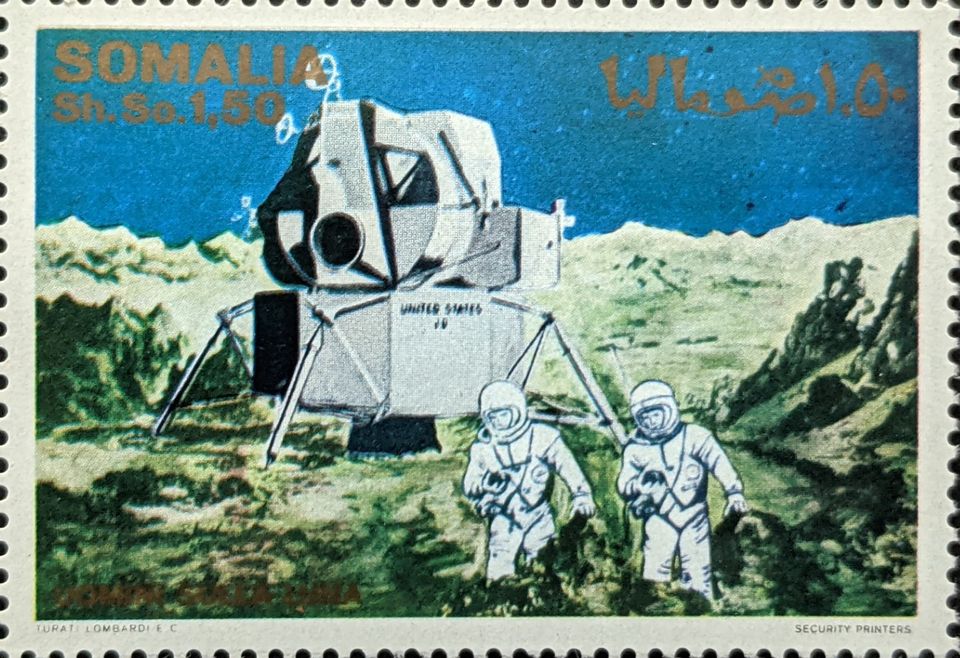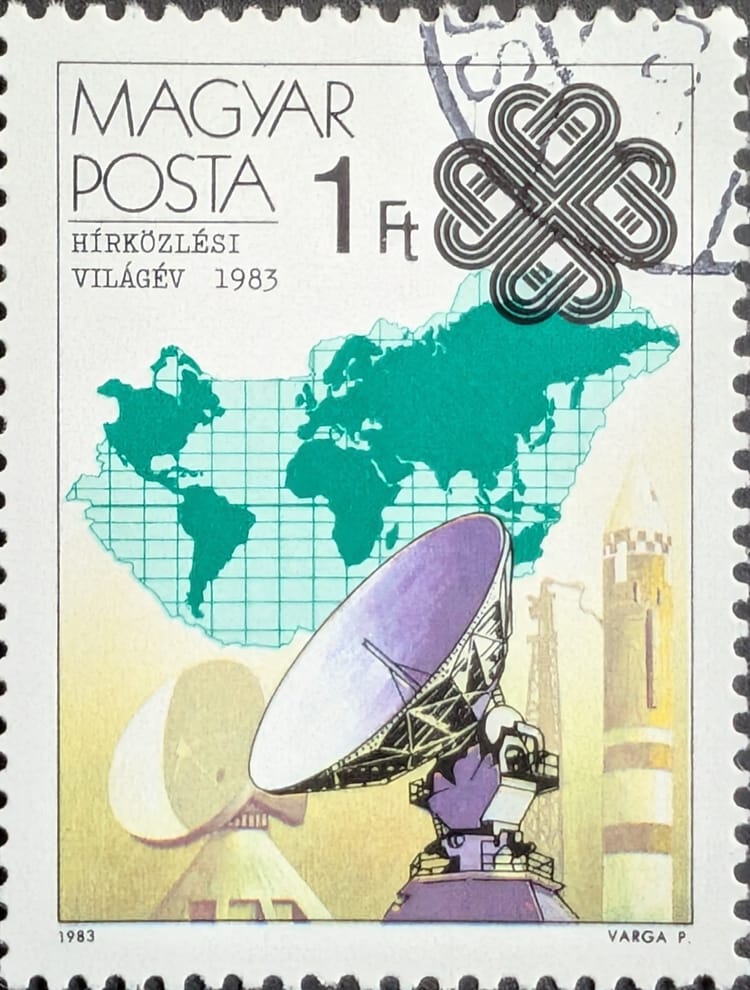Varda Space Industries’ Logical Choice; Blue Origin’s Unhappy Workforce

A low-cost solution
Last week, Varda Space Industries made the news because it decided to launch one of its manufacturing test satellites with SpaceX in 2023. But is that company’s decision, which was probably one of Varda’s most logical and obvious choices, news? Perhaps there is some rationale for a surprise with Varda’s decision. After all, the company uses Rocket Lab’s Photon bus to host its payload and re-entry vehicle, so perhaps it made sense for Varda to choose Rocket Lab’s Electron to launch and deploy those satellites. But Varda chose not to.
Varda’s co-founder/president pretty much summed up the reasons for this decision in SpaceNews:
“Launch costs is a core driver of our economics...We want to stick to the lowest cost available solution.”
There’s only one lowest cost option of the world’s orbital rocket launch companies--SpaceX. This statement is not meant to indicate favor, nor is it hyperbole. But it is why Varda chose that company. That...and reliability. SpaceX’s Falcon 9 is a very reliable rocket, whereas Rocket Lab’s Electron is less reliable. The Electron experienced its third failure in May this year.
And then there’s the launch tempo of the Falcon 9, which is very high (23 launches so far in 2021). All aspects, low cost, good reliability, and high launch rates are essential to a startup with not much cash (Varda has raised $53 million for its venture so far). So if the company can pare down its launch cost, that’s a smart move.
Uh-oh--Math!
When Varda chose SpaceX, it allocated an estimated 2% of its $53 million for its first satellite deployment instead of 10% if it had gone with Rocket Lab. That difference is because SpaceX’s Smallsat Rideshare program charges $5,000 per kilogram. Rocket Lab, with a $7.5 million cost per rocket to loft at most 300 kilograms, would be $25,000 per kilogram.
Varda’s manufacturing satellite has a mass of about 120 kilograms, and the company has stated that it wants “to return over 100 kilograms of manufactured cargo to Earth.“ That indicates that at least 100 kilograms of manufacturing materials are transported with the satellite to orbit (maybe a little more), which adds up to 220 kilograms. That manufactured cargo, by the way, is probably very clear optic fiber.
The rest is easy math--220 x 5,000=1,100,000 and 220 x 25,000=5,500,000. Although, with Rocket Lab, there may be no scaling down on the launch price, and so Varda might potentially pay $7.5 million per launch (which is ~$34,000 per kg). This math is so easy that even entrepreneurs can get it right. In this case, it also fundamentally shows why SpaceX was the easy choice.
Using SpaceX, Varda also gives itself some budget flexibility, and while it hasn’t stated its intention, it may decide to use SpaceX’s Falcon 9 again. It would need excellent reasons not to. Launching the other two Varda test satellites with SpaceX instead of Rocket Lab (or others) means the company only spends an estimated $3.3 million for all three satellite deployments. Contrast that with the potential $16.5 million to $22.5 million if Varda had launched with Rocket Lab. The fact that SpaceX launches a lot of rockets annually and reliably only makes Varda’s choice easier. And to be clear, the potentially small percentage allocated to launch for any smallsat operator is why SpaceX’s Rideshare pricing is a big deal.
If Varda succeeds in this venture, there will be many firsts. One of them is an automated orbiting manufacturing satellite. Another is the viability of a commercial re-entry vehicle that isn’t from the ISS and owned by SpaceX. Even the resulting product, the optic fiber (depending on the cost), could be ground-breaking. Those would be newsworthy events. But choosing SpaceX to help Varda accomplish these firsts is a logical business decision.
Culture Drives Everything
It’s time to talk about culture again, this time regarding Blue Origin’s workforce. For those wondering why I cover culture in space organizations and companies, well, they wouldn’t exist without people. Many companies, new space and old, say they are innovative, and a way to verify that statement is by examining how employees are valued and treated. In a nutshell, innovation requires risk-taking, instilled by confidence, which requires trusting leadership to back employees as they take those risks. If employees and their ideas/contributions aren’t valued, then innovation dies (because why would they stick their necks out for that untrustworthy jerk managing them?).
While no company is perfect in employee treatment, some do a better job at motivating them than others. And other companies...don’t. I’ve worked in both types of environments, with the single motivating job I had eventually (and sadly) becoming a motivational desert (and not just for me). Still, I was sad to leave that job because of all the people I worked with. That all noted, in my experience, it doesn’t take much to demotivate motivated people.
Case in point, Blue Origin’s workforce travails.
People: They’re a Blessing (and a Curse)
It appears that Blue Origin’s veneer of innovation and space technology expertise is beginning to wear thin for a few employees. It’s not surprising, not because it’s Blue Origin, but because Blue Origin runs on people. People, who can be innovative and kind, can also be cautious and cruel. A company consists of people--managers, engineers, janitors, IT, marketers, etc. Author and consultant Christopher Duncan notes the challenge of people in “Unite The Tribes:”
“Of course, the problem with that is the fact that people are highly individual and have a wide array of emotions and reactions, not to mention more baggage than the average 747. This makes us as unpredictable as we are productive. On a good day, we can scale the highest mountain. On a bad day, we may very well throw you off the peak.”
These people theoretically work together, even as they are working their own agendas, to achieve a company goal. But, ultimately, their workplace culture falls in one of two categories.
The first and most familiar environment, unfortunately, is the one that sucks. This is the environment most of us are acquainted with. We know the lousy environment when we see it. There’s typically a vibe, including how managers treat employees, how employees treat each other, and how they all treat potential new hires (Are they better than you? Run away!!). The second environment is the one that doesn’t suck--it might even be good. A good environment is rare, and this fact is why many people choose to go into consulting. Its rarity appears to be a reason for this “Great Resignation” trend hitting U.S. employers.
People aren’t sponges
It seems that Blue Origin’s workforce culture aligns with the “suck” side of the equation, which is too bad. The company knew it had workforce challenges at least three years ago for motivating and retaining talent. Just seeing the following quote in that article, “We need to get more out of our employees..." demonstrates why it can’t retain talent (people aren’t sponges).
Just guessing here, but Blue Origin’s employees were motivated, probably putting heart and soul into helping the company build New Glenn. That comment, however, displays a profound misunderstanding of employee motivations in Blue Origin. And that’s too bad because understanding employee motivations means that a leader could appeal to them and show the employees what’s in it for them.
Its culture also appears to be toxic (based on this story), encouraging unacceptable behavior towards women from high-level managers (Baby doll! Really??!). The company’s leadership actively suppressed employee feedback while pushing more work on employees and accelerating their schedules without providing more resources. It’s forcing employees to sign contracts that prevent them (and their heirs!) from saying anything negative about the company, which is weird when one considers the source of Blue Origin’s funding--Amazon and its product review system.
The opposite of progress
Any one of the conditions in the above paragraphs at Blue Origin would be enough to demotivate employees. But if all are true...well...that doesn’t bode well for Blue Origin. It’s eschewing diversity of people (and therefore ideas and innovation), eschewing employee feedback, and ignoring safety issues while building rockets quickly--because? Worse for Blue Origin, demotivation is only the beginning. Again, from “Unite the Tribes:”
“You might think that unreasonable expectations would simply cause people to fall short, meaning that you just won’t get the gains you wanted. You might even expect to receive at least a little progress. The worst thing that can happen is that you just won’t see any improvements at all, right? On the contrary, when people become disillusioned, they don’t stand still. They slide backward, sometimes with conscious intent. Things don’t just stay the same. The begin a steady journey in the opposite direction.”
Is Blue Origin progressing or regressing? And is the company’s management, which has had years to fix its culture, reaping what it has sown due to its toxic policies? To be clear, I would rather Blue Origin was doing as much as SpaceX. I really would have enjoyed seeing two modern space launch competitors go head-to-head. The results would have been fantastic for everyone. But, as I noted in “Counting the Days of Amazon and Blue Origin” about Blue Origin’s legal shenanigans against NASA:
“With Blue Origin, we get to witness aggressiveness, but without the dynamism or even intelligence. Bezos’ attempted what appears as bribing NASA, and when that didn’t work, he resorted to using the law to force NASA to take the bribe. Perhaps Bezos might view that as a type of customer obsession, but the more emotionally balanced might have a less appreciative view.”
“Blue Origin is undoubtedly not the dynamic and competitive company that Amazon is, which is a shame. Bezos had implemented a philosophy for growing and running a company–Amazon. That implementation worked astonishingly well and why he didn’t adapt the philosophy to his rocket company is disappointing and puzzling. Legal coercion of a customer to use a product or service is not creating an opportunity for Blue Origin to invent on the customer’s behalf. Instead, it’s shoving a not-readymade solution down that customer’s (NASA’s) throat.”
Blue Origin is a different animal than SpaceX and, weirdly, Amazon, which is to its detriment. These companies are all built on people and the good and bad that come with them. All companies have two choices for building an employee culture--make it suck for people or make it better for them. And those other two companies aren’t great examples of a positive cultural employee experience, either. For example, Blue Origin’s inspiration for a few of its employee “motivators” was SpaceX and its employee burnout rate and somehow adopting that. Burnout is not a sign of a healthy work environment either, but then SpaceX compensates its employees better than the one backed by an Amazon billionaire.




Comments ()